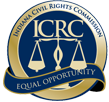INDIANAPOLIS – Jamal L. Smith, in his official capacity as the Executive Director of the Indiana Civil Rights Commission (ICRC), issued a charge today on behalf of an Indiana man against Debra Wernke and Hunter’s Ridge Apartments in Plainfield, Ind. The charge states that there is reasonable cause to believe that an unlawful discriminatory practice occurred in violation of the Indiana Fair Housing Act (Ind. Code § 22-9.5, et seq.) and the Indiana Civil Rights Law (Ind. Code § 22-9, et seq.)
In August 2014, Complainant, an individual with a vision impairment and mobility restrictions, completed and submitted a rental application in hopes of living at Hunter’s Ridge Apartments in Plainfield, Ind. Shortly thereafter, on or about September 2, 2014, Complainant received a telephone call informing him that the application had been approved and that he would need to come in and review and sign the rental agreement.
On September 4, 2014, the Complainant, his two brothers, and service animal returned to the leasing office to discuss the lease, obtain keys, and tender the first month’s deposit. However, during the visit, Debra Wernke, Respondent’s co-owner, advised that she was unaware Complainant had a service animal. She went on to say that Complainant, because of his disability, could not clean up after the animal. Respondent admits to tendering Complainant a letter indicating it would hold the apartment open for one week so that he could “arrange to be trained or receive training for cleaning up after his service animal.”
While it is clear that it is the Complainant’s responsibility to clean up and care for his service animal, no evidence has been provided by Respondent to show that it routinely requires other tenants to receive training before renting from Respondent. As such, despite Respondent’s assertions, there is sufficient evidence to believe that a discriminatory practice occurred as alleged.
In order to prevail, Complainant must show that: 1) he is a member of a protected class; 2) he was qualified, ready, willing, and able to rent in a manner consistent with Respondent’s reasonable terms and conditions; 3) he applied to rent a unit from Respondent; 4) he was subjected to different terms and conditions; and 5) Respondent treated similarly-situated tenants without disabilities more favorably under similar circumstances.
A public hearing is necessary to determine whether a violation of the Indiana Fair Housing Act and the Indiana Civil Rights Law occurred. As permitted by 910 IAC 2-6-6(h), Respondents, Complainant, or an aggrieved person on whose behalf the Complaint is filed may elect to have the claims asserted in a civil action under Ind. Code § 22-9.5-6-12 in lieu of an administrative proceeding.
